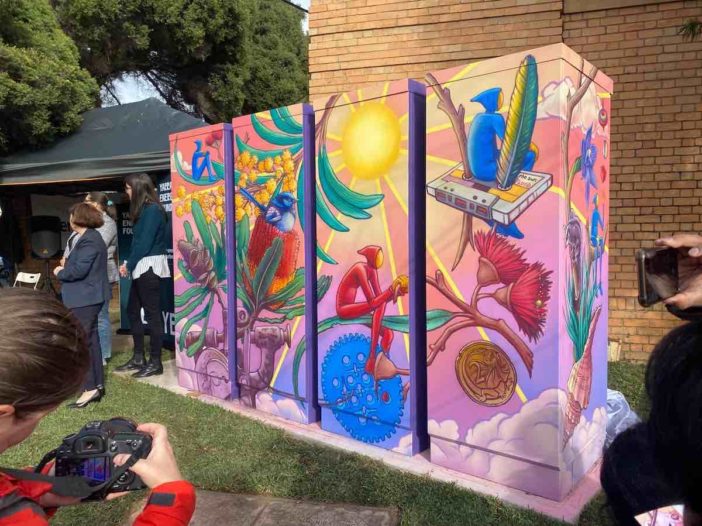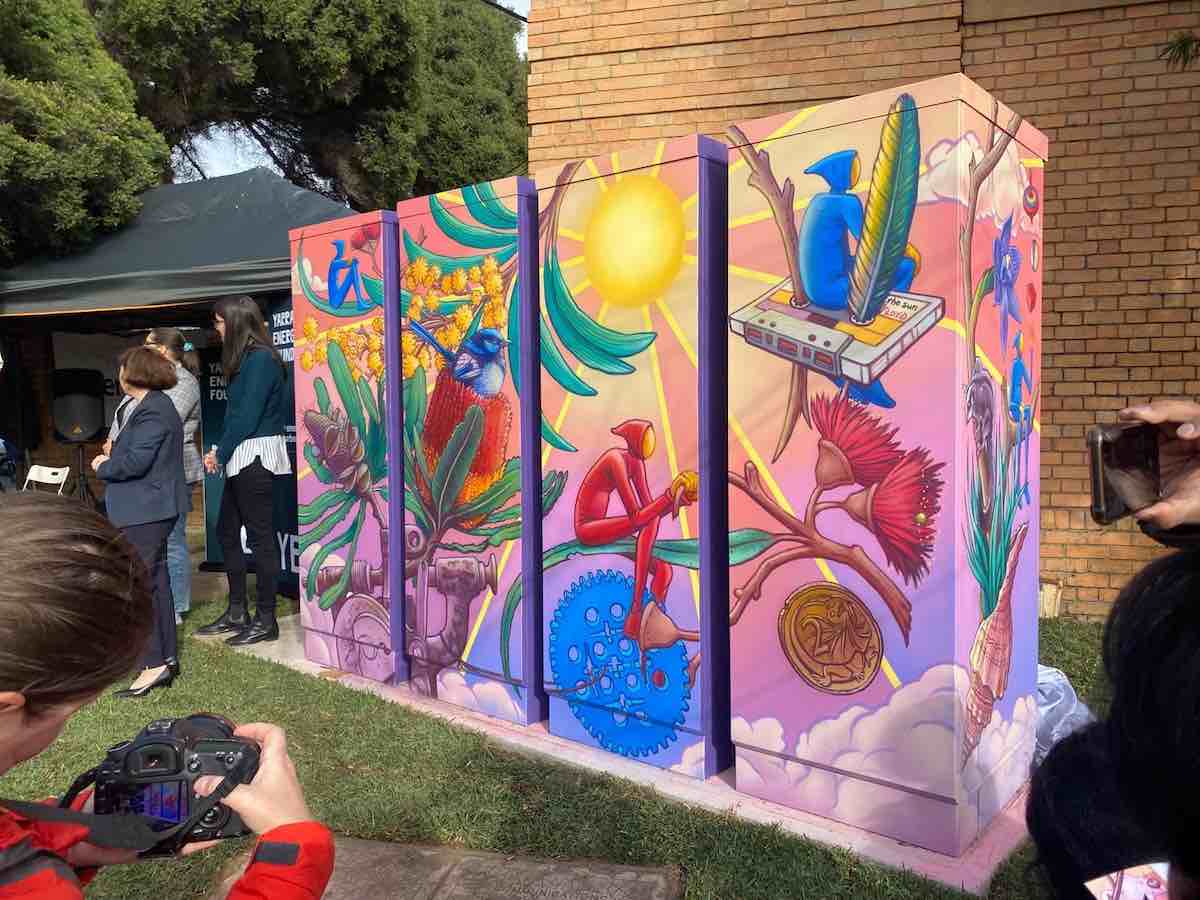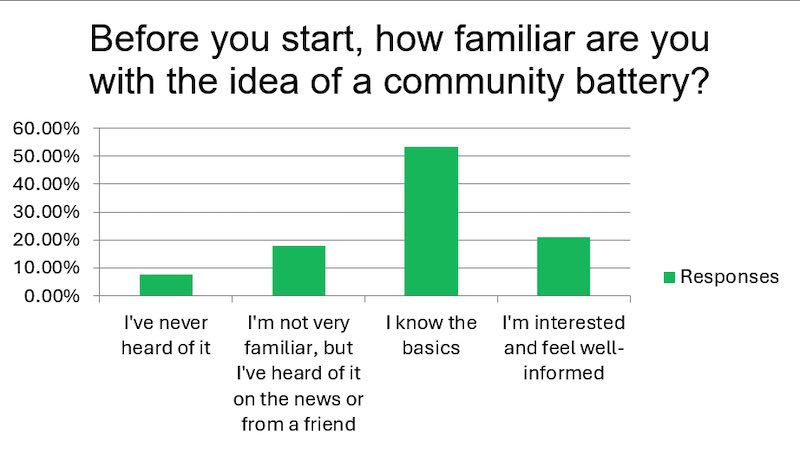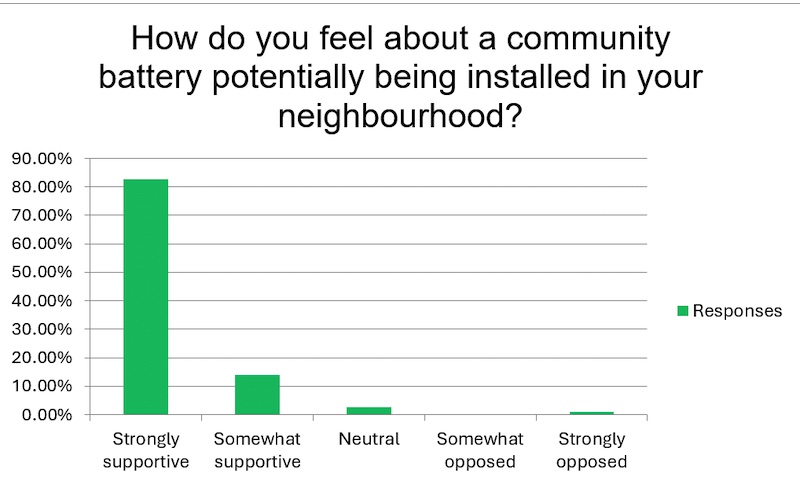
A Melbourne survey has revealed popular support for community batteries, with more than 80% of respondents saying they are “strongly supportive” of a shared battery being installed in their neighbourhood.
The Yarra Energy Foundation recently conducted a survey to coincide with a four-month partnership with the Yarra Trams Community Partnership Program for 2023 which saw a community battery-themed tram join Melbourne’s tram network.
The survey follows up on Yarra Energy Foundation’s delivery of one of Australia’s first, third-party independently-owned community energy storage systems – a 284kWh lithium-ion BESS installed in North Fiztroy in mid-2022.
YEF, a not-for-profit energy services outfit, delivered the community battery in partnership with Ventia and Acacia Energy, and with the backing of local utility CitiPower and of the Victorian government.
The battery, installed at the site of an inner urban power substation, is designed to soak up excess solar generated on rooftops in the neighbourhood and to store it for use in the evening, when the sun goes down and peak demand kicks in.
Since then, community batteries have shifted further into the political spotlight, with the introduction and beefing up of federal government and state subsidies incentivising their rollout.
Arena has also reported huge popular interest in the energy storage solution, reporting in November that it received 140 applications for its grant scheme seeking funding of $1.3 billion – more than 10 times the $120 million available under the program’s first round of funding.
The YEF survey was completed by nearly 200 participants and revealed an insightful glimpse into people’s perception and understanding of community batteries.
Over 50% of respondents claimed they already knew the basics of how a community battery works – potentially the result of increased media coverage in recent months as community batteries begin to roll out across the city.
Most encouraging was the virtually unanimous support for community batteries, with 96% of respondents replying they were either “strongly supportive” or “somewhat supportive” of a community battery being installed in their neighbourhood.
“Community support for batteries is critical for establishing social license to install them,” Yarra Energy Foundation concluded.
“Greater awareness and knowledge are also likely to significantly reduce the risk of negative responses and resistance, while cultivating a more culturally accepting and supportive environment for future projects.”
A wide variety of responses were given to how community batteries can benefit, but “supporting the transition to clean energy” was the most important, with 67% of participants rating it as their highest priority.
Similarly, more than 55% of respondents indicated they had no concerns regarding the installation of a community battery in their neighbourhood.
If there were concerns, these mainly centred around equal access for apartment dwellers and renters or the “too-slow” pace of the rollout of shared energy storage systems.
Some interesting responses listed under “other” include comments such as “Not done soon enough – it needed to be done yesterday”, and “Make community batteries standard for new housing developments.”
Another comment said “It is too slow. Why is there only 1 in Yarra?”



